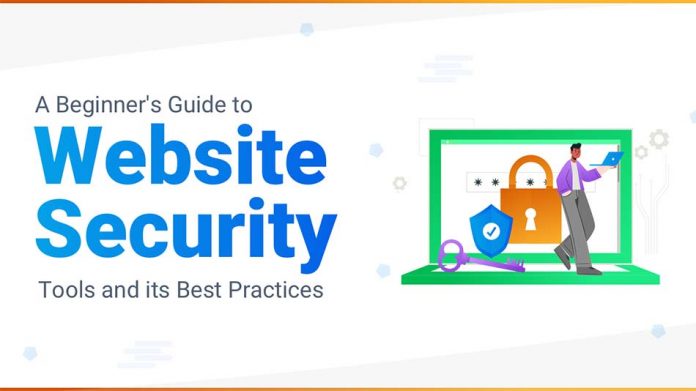Table of Contents
Are you aware that every 14 seconds, company websites like yours succumb to hackers and scammers? Even the most minor security breaches can put your website in a difficult position.
Web security is already a challenging and developing subject. Hackers constantly reimagine themselves to get around these security mechanisms and target vulnerable sites. Even though new and more effective security services and website features are continually being developed, so it goes without saying, no website is safe from hackers. It leads to the question: how can you protect your website from hackers and other security threats?
There are many ways to ensure your website’s safety. However, no method is ever going to be “hacker-free.” Still, using preventative measures will ensure that your website is in a strong position and isn’t susceptible to being backed up. So without further ado, here’s what you need to do to keep your website safe from hackers and spammers:
Limit admin access
You may grant your staff different levels of access to your website, with admin access allowing them to read and modify any information. When an admin account becomes compromised, the most disastrous website hack occurs—limit who has access to the admin login to lessen the likelihood of that occurring. Give administrative access only when it is necessary.
Furthermore, today’s tech employees must be more vigilant about the cybersecurity space and seek a combination of both education and experience if they wish to remain updated. So if you’re looking to climb the ladder of success while proving to be a great asset to your business’s website, consider opportunities for higher education. With a relevant undergraduate degree, you can choose to study for a cyber security masters online from a reputable institution. An advanced degree in cybersecurity will equip you with the latest knowledge and skills you need to expand your career and secure your business’s online presence.
Use robust and secure passwords
Nowadays, most of us are conscious of the importance of using a safe password for anything significant. Still, many individuals are so lazy that using passwords like “123456” or “password” is frightening. It is not acceptable in this day and age since it merely invites hackers to your website. Your password must be something special that is nearly impossible to decipher or predict. It must fit in and have both capital and lowercase letters, as well as digits. Additionally, try to include symbols ($,! #?=, etc.).
Worry not if the thought of remembering such a password seems intimidating; there is a solution for this issue as well. Make use of a password manager. A password manager can create incredibly safe random passwords for all of your online accounts. You only need to remember one password (your Password Manager account), and it will take care of the rest of the job for you if it can recall them all.
Update all software and plugins
Numerous websites are attacked every day as a result of obsolete software. Sites are being scanned for attacks by bots and prospective hackers. The security of your website depends on updates. Your site is not safe if its applications and software are out-of-date. Consider all requests for software and plugin updates seriously. Updates frequently include security improvements and bug fixes. Check your website for upgrades or install a plugin that alerts the user of upgrades. Another method to guarantee website security is the ability of some systems to perform automatic updates. Your site will be less safe the more you wait. Therefore, prioritize updating your site and all of its features.
Purchase domain privacy
Your information is entered into a public database when you buy a domain name, whether explicitly or through your web server, and anybody can access it. This database will include personal data such as your identity, contact information, and email address. Your personal information is displayed, including identity thieves, spammers, and hackers. All domain registrars provide domain privacy services. This service will have a tiny fee, but it also comes with advantages, making it an incredible bargain. It will conceal your details so it can go public without affecting who owns the domain. It’s a short and easy step to take. Still, it can significantly affect whether you run a secure or unsafe website.
Run website backups
A website backup creates a copy of your website, just like any other type of backup. Website backups enable you to swiftly recover your website when it is built if a security vulnerability on your website is identified. Additionally, it can reduce revenue loss and service disruptions. Without backups, restoring your website could take several weeks or months. Sometimes the damage may be beyond repair. Frequently, having a backup is the difference between rebuilding your website for thousands of dollars and getting it back online quickly.
Depending on your particular needs, you should back up your website as often as necessary. Your files will be more up-to-date if you need to enable them if you store more backups. Daily backups are recommended, and backup files should be kept apart from your primary website’s contents. Before updating or installing any website software, you should also create a backup of your website.
Use HTTPS
The communication protocol, HTTPS (or HyperText Transfer Protocol Secure), encrypts the data as it is transferred between a server and a website.
Any effort to access the information while it is in transit will therefore fail to display the data that is being transmitted. In reality, Google will now consider a site’s HTTPS status when determining its search ranking because of the safety advantages of SSL. Restoring your website can be difficult and expensive, depending on what data the hackers target and how much damage they cause. You lessen the probability of an attack by implementing simple safety measures. And if you are attacked, having these primary defenses in place will help to better safeguard the sensitive data on your website.
Conclusion
In the online realm, hacking is a widespread phenomenon that has put the integrity and safety of your systems at risk. As a result, protecting your website is an ongoing process. It entails continually scanning the website for bugs and patching them as they appear. Even if the safety measures mentioned in this article don’t guarantee complete security from hackers, they help reduce the likelihood of being compromised.















